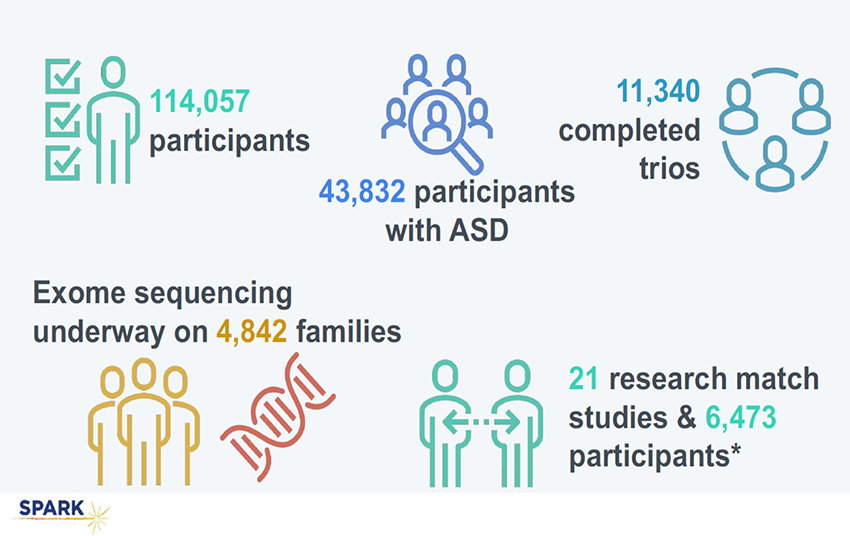SPARK is a large, online, national research initiative working to bring together a community of individuals with autism and their families. The primary goal of SPARK is to identify the hundreds of genes suspected to be contributing to autism and understand their biological mechanisms.
SPARK also seeks to connect this community of individuals and families to research opportunities that advance the understanding of autism. The Thompson Center is one of 25 sites around the country selected to help recruit participants.
What has SPARK accomplished so far?
What’s New with SPARK?
Recruiting participants for autism studies can be extremely expensive and time consuming. In order to hasten our understanding of autism, SPARK has created a new Research Match program, which helps to introduce the 114,000-plus SPARK participants to new research opportunities offered by scientists from around the country.
This process will make it easier for researchers to connect with potential participants, allowing researchers to focus their time and effort on their science, rather than recruitment. The SPARK Research Match program can support many kinds of studies, including in-clinic studies, online surveys, and other types of studies such as remote participation, focus groups and infant sibling studies.
For more information about this program, contact Amanda Shocklee at the Thompson Center, shockleea@missouri.edu or 573-884-6092. To register for SPARK visit www.SPARKforAutism.org/MUTC.


